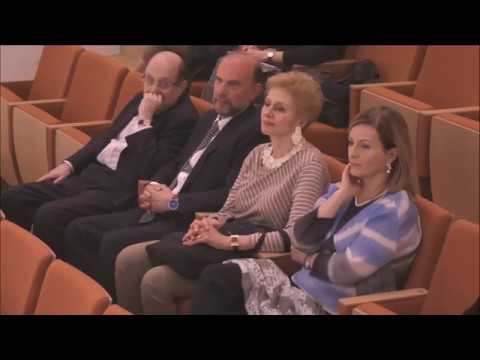Three Eisenstein Utopias
Lecturer: Naum Kleiman
In honor of Dr. Leonard Polonsky
Eisenstein’s activity as a film director and a theorist of art was connected to many aesthetic, psychological, and social ideas. One of these was the hope to change the spectator’s attitude to life through art, transforming a slave into a free, active, and (self) responsible citizen. Another was awakening the personal sense of harmony through harmony in the structure of the piece of art, which he saw as connected to the image of paradise and the subconscious memory of the mother’s womb. The third was a social utopia: the dream of a classless peaceful society based on the democratic cooperation of the people with scientific, economic, public, and state structures.
Subscribe to our newsletter - https://goo.gl/Hc3c1v

